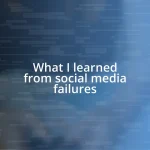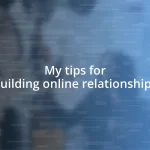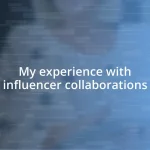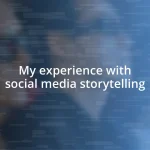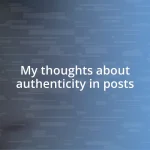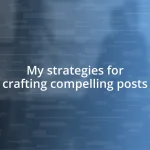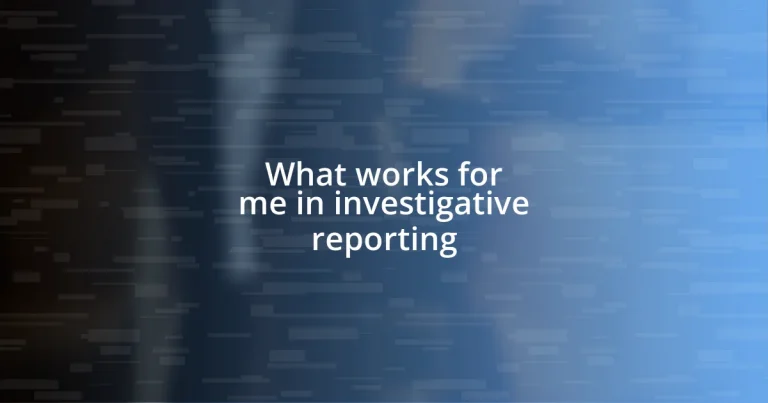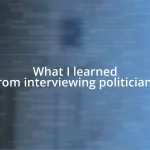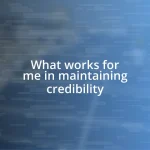Key takeaways:
- Investigative reporting requires a blend of critical thinking, communication skills, empathy, and persistence to uncover the truth and tell impactful stories.
- Effective research techniques include using both traditional methods like library archives and modern tools such as online databases, complemented by networking for insider insights.
- Ethical considerations are paramount, necessitating transparency, respect for sources’ privacy, and a commitment to fairness to enhance trust and narrative depth in reporting.
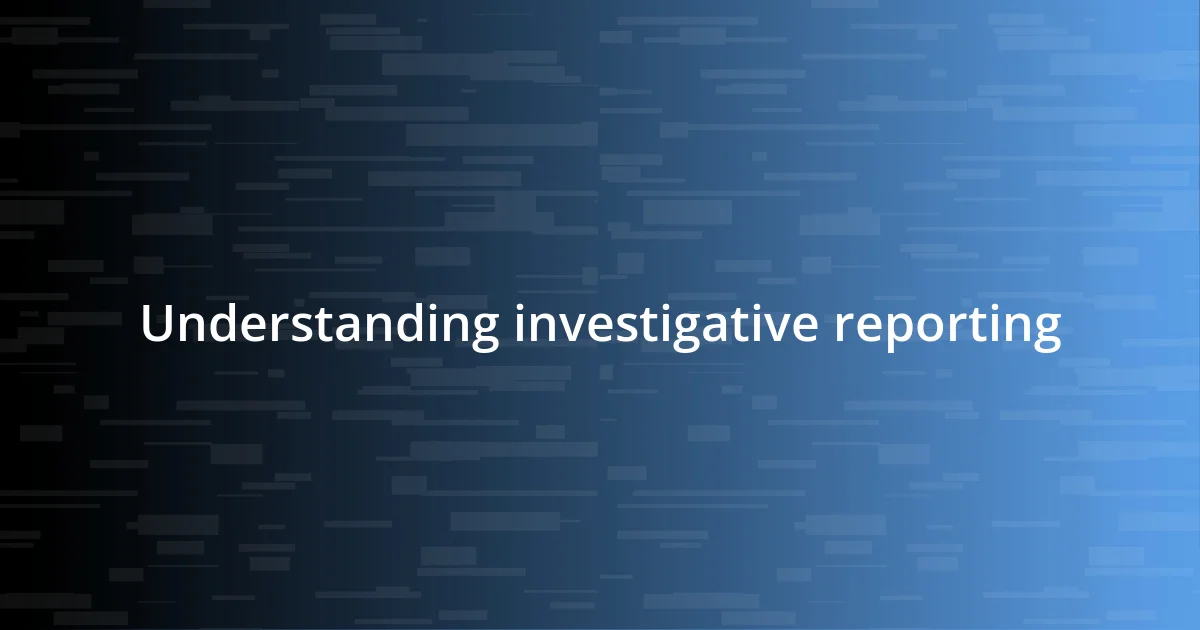
Understanding investigative reporting
Investigative reporting is more than just digging up facts; it’s about uncovering stories that demand to be told. I remember the first time I stumbled upon a hidden corruption case. The adrenalin rush was palpable as I sifted through stacks of documents, piecing together a narrative that exposed unethical practices in my local government. It felt like solving a puzzle where every piece mattered.
At its core, investigative reporting seeks truth and accountability. I often find myself reflecting on the weight of that responsibility. How do we, as reporters, ensure we’re not only reporting accurately but also amplifying the voices of those often overlooked? This refinement of focus drives me to dig deeper, to ask tougher questions, and to listen with empathy. The stories we tell can change lives, and understanding that power is crucial in this field.
The process can be daunting, and there are moments of doubt. I recall facing skepticism when I presented findings that challenged long-held beliefs in my community. Yet, it was those very encounters that taught me resilience and the need for unwavering commitment to the truth. Investigative reporting is a journey steeped in curiosity, empathy, and the courage to confront uncomfortable realities.
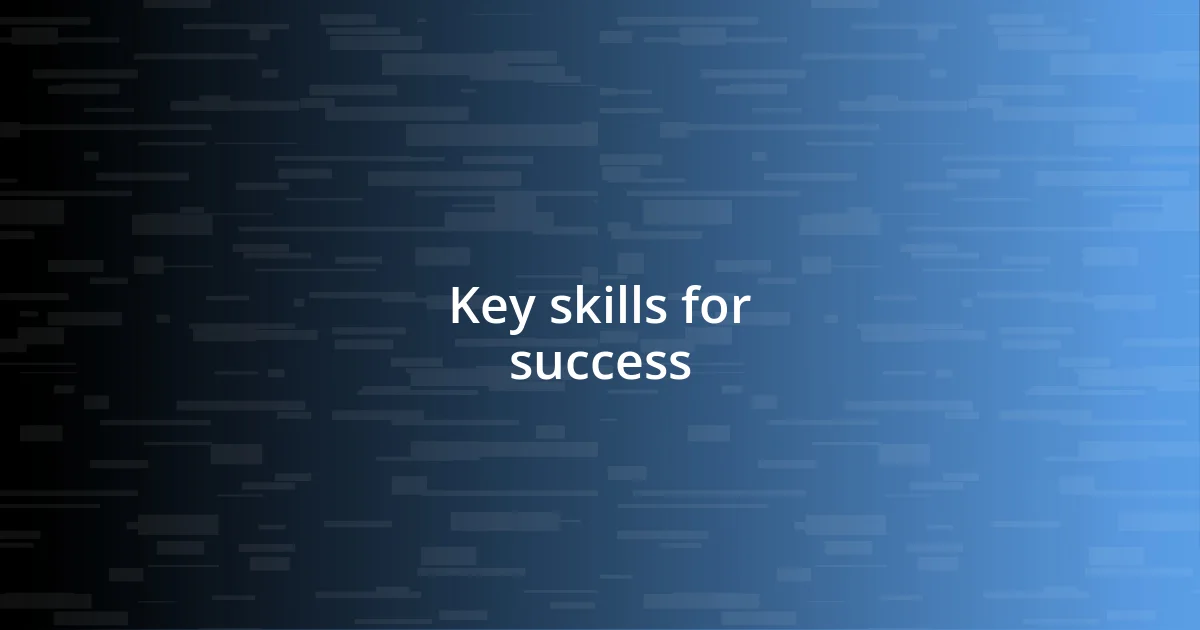
Key skills for success
When it comes to investigative reporting, a combination of skills makes a significant difference. Analytical thinking stands at the forefront; I’ve learned that deciphering complex information is often the key to connecting the dots. There were instances when I meticulously reviewed spreadsheets filled with data, sometimes losing track of time, only to notice patterns that pointed toward a much larger issue.
Here are some pivotal skills that can elevate success in investigative reporting:
-
Critical Thinking: The ability to assess sources and arguments critically is essential. I’ve faced situations where trusting the wrong person could have derailed an entire investigation.
-
Communication: Both in writing and speaking, conveying complex information clearly is vital. I often draft stories with multiple drafts, ensuring that every word resonates with clarity and impact.
-
Attention to Detail: Overlooking small details can lead to significant errors. I remember missing a crucial date once, which delayed the release of an important story.
-
Persistence: I’ve encountered numerous roadblocks, but the urge to uncover the truth always pushed me to persevere, no matter how daunting the task seemed.
-
Empathy: Understanding the human element behind the stories I report on makes my work more compelling. Connecting with sources on a personal level has often provided deeper insights and richer stories.
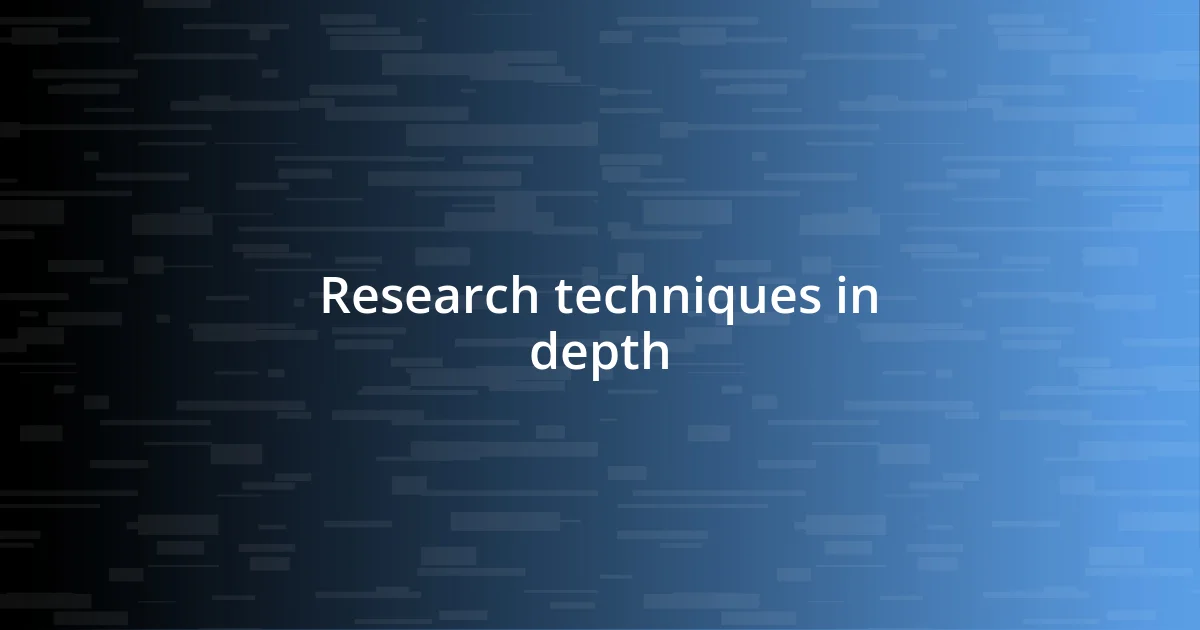
Research techniques in depth
When diving into research techniques, I often lean on both traditional and modern approaches. I remember spending hours in the local library, flipping through old newspapers and archived reports, only to uncover a long-forgotten scandal that tied into my current investigation. This hands-on method, while time-consuming, felt incredibly rewarding. It reinforced my belief that sometimes, the most valuable insights come from unexpected places.
Online databases have become invaluable tools in my investigative arsenal. I frequently utilize platforms like LexisNexis to access legal documents and previous court cases, giving me a comprehensive background on any legal issues involved. The thrill of finding that one document that flips a story on its head is unmatched; it’s like finding gold in a digital haystack. Comparing digital searches to physical research, the former allows for quicker aggregation of information, while the latter often yields deeper, more nuanced understanding.
| Research Technique | Insights and Application |
|---|---|
| Library Archives | Invaluable for uncovering historical context; hands-on research reveals forgotten stories. |
| Online Databases | Quick access to legal documents and records; ideal for connecting dots across different cases. |
Networking with other journalists and experts in the field is another essential research technique. I recall attending a press conference where I connected with a source who later provided me with inside information critical to my investigation. Building these relationships often leads to informal tips that aren’t available through traditional research methods. The human element adds another layer of depth to my findings, and it reminds me that at the heart of every story are the people affected by it.
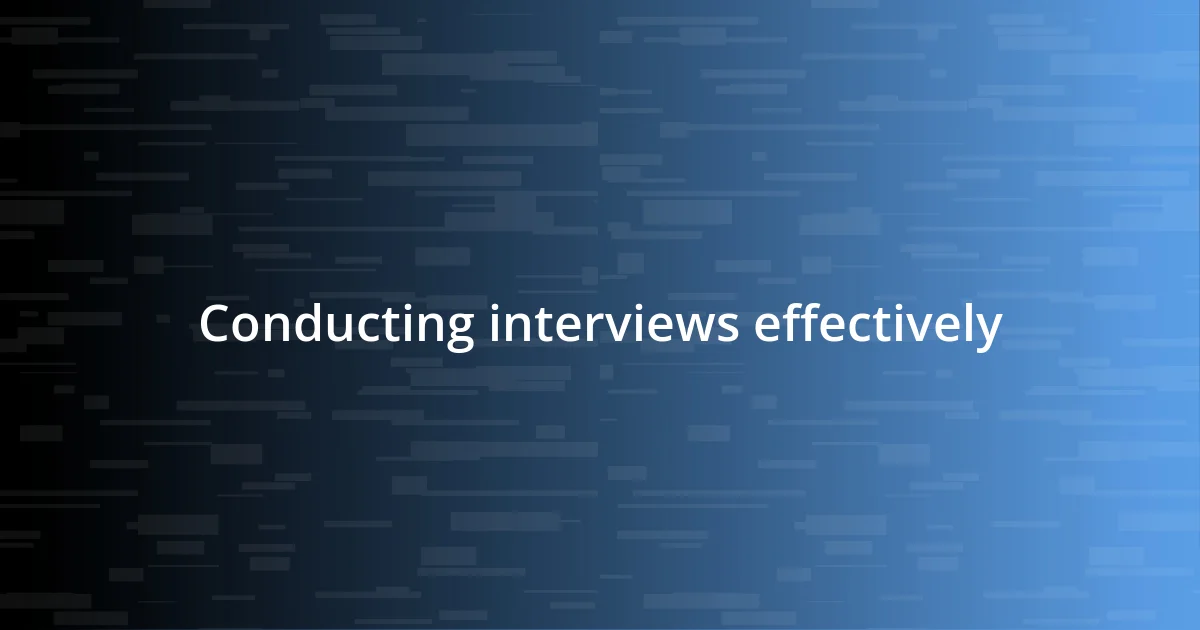
Conducting interviews effectively
Conducting interviews effectively requires a mix of preparation and a genuine curiosity about the subject. I always walk into an interview armed with thoughtful questions, but I remain open to following the conversation where it naturally leads. There was a time I asked a seemingly straightforward question to a source, which unexpectedly opened the floodgates to a compelling story that I hadn’t anticipated.
Building rapport is crucial. I find that sharing a bit of my own experience often helps put the interviewee at ease. For instance, I once had a challenging interview with a reluctant source. During our chat, I revealed a personal connection to the topic, which shifted the dynamic. Suddenly, we had a mutual understanding, and the information flowed freely, enriching the narrative significantly.
Listening actively is perhaps the most underappreciated skill in interviewing. I focus intently on what my sources say, looking for emotions behind their words. In one memorable interview, I noticed a source hesitating as they spoke about a sensitive topic. A simple follow-up question inviting them to share their feelings led to a powerful moment of vulnerability, providing me with insights that made the story resonate deeply with readers. How often do we think we know what a source will say, only to be surprised by their unique perspective?
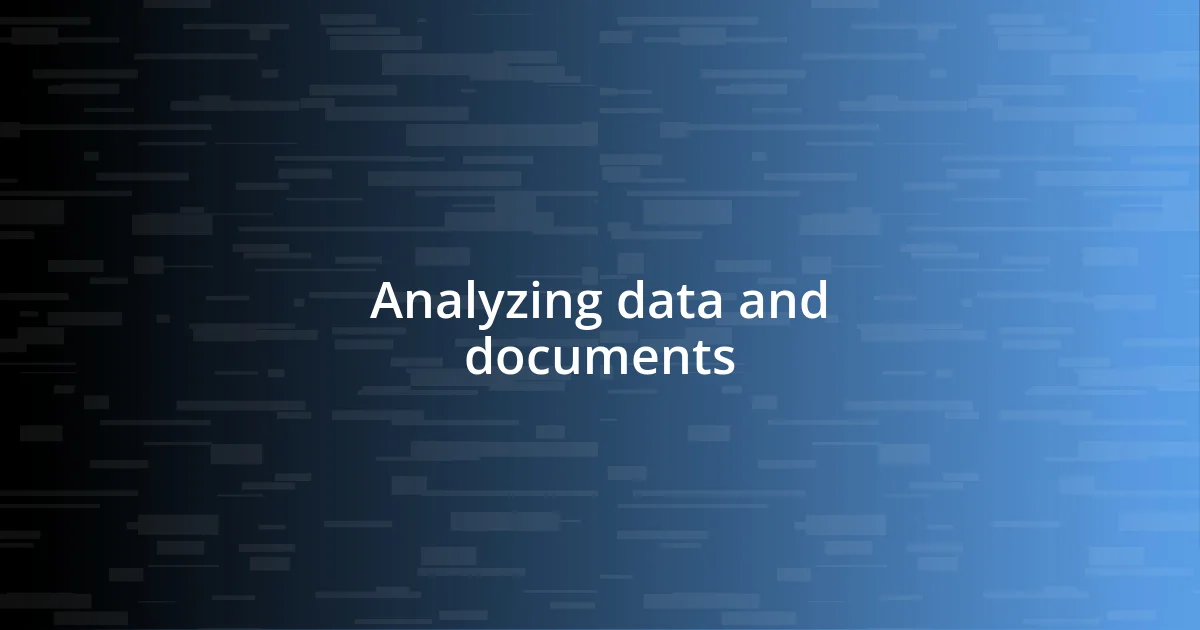
Analyzing data and documents
Analyzing data and documents is like piecing together a jigsaw puzzle. There was a time when I stumbled upon a set of financial records that seemed mundane at first glance. But as I meticulously combed through them, patterns began to emerge that revealed discrepancies suggesting potential fraud. It’s in those quiet moments of analysis that the real stories often lurk, waiting to be uncovered.
I often utilize spreadsheet software to organize large sets of data. One project involved tracking public spending in a local government over several years. By creating visual representations—charts and graphs—I could clearly illustrate where the money was going and highlight suspicious spending. This kind of analysis not only strengthens the narrative but also provides readers with concrete visuals that enhance understanding. Don’t you find that a clear visual can make complex information so much more accessible?
Documents aren’t just paper; they often carry the weight of hidden truths. I’ve come across redacted files filled with blacked-out lines that at first seemed frustrating. When I applied different analytical techniques—like context comparison and source verification—those obscured sections began to tell a different story about the decisions being made behind the scenes. It’s a reminder that what’s hidden can be just as important as what’s visible, and that perseverance in analyzing data can reveal shocking insights.
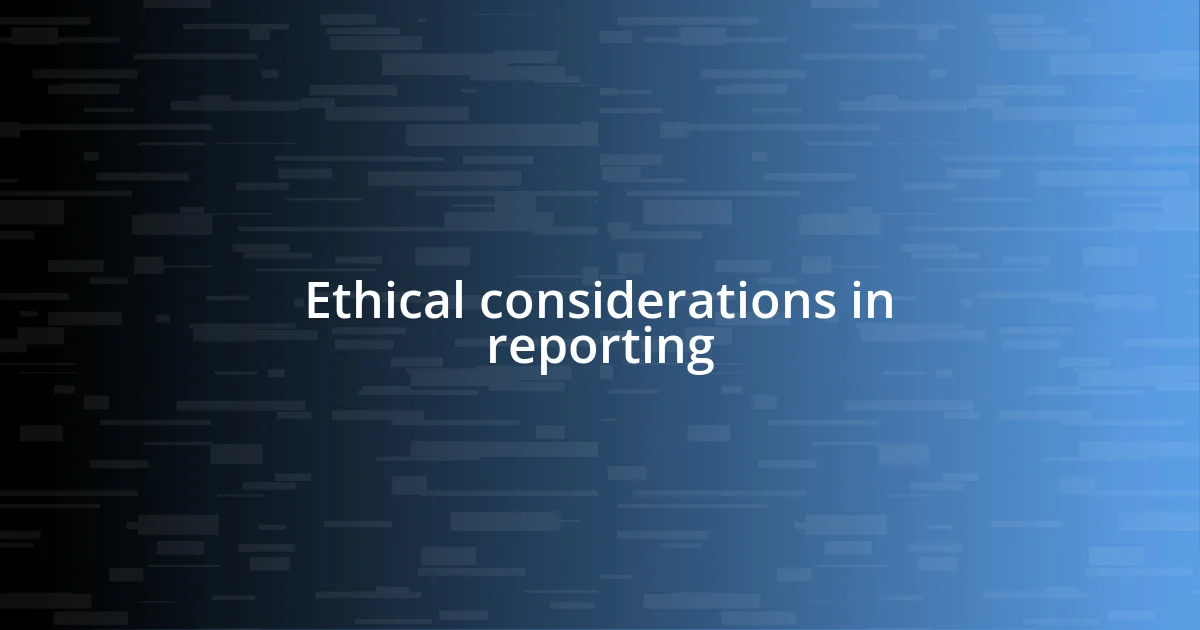
Ethical considerations in reporting
Ethical considerations in reporting are often the backbone of compelling journalism. I remember a time when I was faced with a sensitive story that could impact an individual’s reputation. I had to weigh the importance of informing the public against the potential harm to the person involved. In the end, I chose to reach out to them for their side of the story, ensuring they felt heard and respected. Isn’t it interesting how taking that extra step can not only enhance the story but also uphold trust in the reporting process?
Navigating the complexities of ethics often means being transparent about your motivations. I once dealt with a situation where I had a strong personal opinion about a controversial issue. It was challenging to keep that bias from influencing my reporting. I realized that by consistently reminding myself of my commitment to fairness, I could maintain objectivity. How do you keep your biases in check when reporting on topics that resonate deeply with you?
Respecting the privacy of sources is another crucial aspect. During an investigation, I found myself speaking with whistleblowers who shared life-altering information. They were genuinely fearful of repercussions. I learned the importance of safeguarding their identities and ensuring their comfort in sharing their truths. It leads me to question: how many journalists truly prioritize the well-being of their sources over the rush of breaking news? From my experience, putting people first often leads to richer, more profound stories that resonate with audiences on a deeper level.
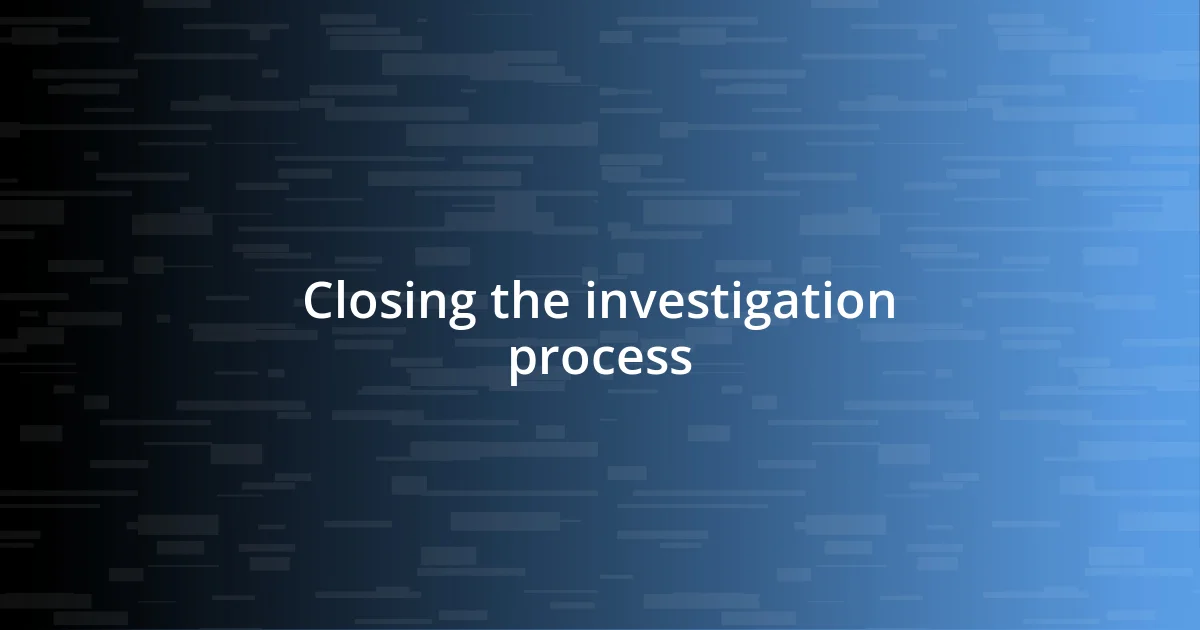
Closing the investigation process
Closing the investigation process is often an experience filled with mixed emotions. I remember wrapping up an investigation into environmental violations that had taken months of digging. There was a sense of accomplishment, but also a nagging worry: did I uncover everything? It’s moments like these that push me to double-check details and ensure I’ve built a thorough narrative that truly reflects the facts.
As I finalize my findings, I take a moment to reflect on the human stories behind the data. I can’t forget the moment when I connected with a family affected by pollution; their struggles added depth to my reporting. It’s not just about the numbers or the policies; it’s about people. How could I present my investigation without emphasizing their voices? Leaving out their experiences feels like a missed opportunity to create a more powerful story.
I’ve also found that revisiting my notes and drafts helps crystallize my thoughts before publication. The act of reviewing often sparks new ideas or catches errors I might have overlooked. One time, while reviewing notes after a tiring day, I realized I had an overlooked quote that would shift the narrative perspective. Isn’t it amazing how stepping back provides clarity? Each detail, each insight, matters in crafting a compelling conclusion to the investigative process.




